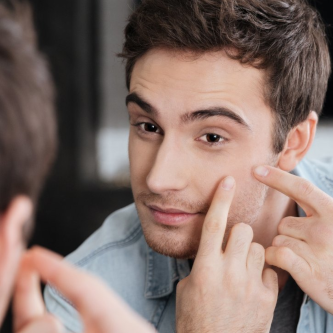
CBD for Acne: A Natural Solution Backed by Science
Share
Acne is a common skin condition that affects millions worldwide, often causing physical discomfort and emotional distress. While there are numerous treatments available, many people are turning to natural alternatives like Cannabidiol (CBD) for relief. Recent research, including a study published by Attila Oláh and colleagues in the Journal of Clinical Investigation, has highlighted the potential of CBD as a powerful agent in combating acne. This article explores how CBD can help manage acne and promote clearer skin.
Understanding Acne and Its Causes
Acne is primarily caused by the overproduction of sebum, an oily substance produced by sebaceous glands in the skin. When excess sebum combines with dead skin cells, it can clog hair follicles, leading to the development of pimples, blackheads, and whiteheads. Inflammation and bacterial growth within these clogged pores can further exacerbate the condition, resulting in painful and persistent breakouts.
CBD’s Role in Managing Acne
CBD, a non-psychoactive compound derived from the cannabis plant, has gained attention for its potential to treat various skin conditions, including acne. The study published in PubMed Central suggests that CBD may be effective in reducing acne due to its ability to regulate sebum production and its anti-inflammatory properties.
- How CBD Works Against AcneRegulating Sebum Production: One of the key findings of the study is that CBD can help regulate the production of sebum. It does this by inhibiting the activation of sebocytes, the cells responsible for producing sebum. By preventing these cells from producing excess oil, CBD can reduce the likelihood of clogged pores and subsequent acne formation.
- Anti-Inflammatory Effects: Inflammation is a significant factor in the development of acne. CBD’s anti-inflammatory properties help reduce the redness and swelling associated with acne breakouts. By interacting with the endocannabinoid system (ECS) in the skin, CBD can help modulate the immune response, thereby minimizing inflammation.
- Antibacterial Properties: The study also points to CBD’s potential antibacterial effects, which can help combat acne-causing bacteria such as Propionibacterium acnes. By reducing bacterial growth on the skin, CBD can prevent infections that lead to more severe acne lesions.

Benefits of Using CBD for Acne
- Natural and Gentle: Unlike some traditional acne treatments, which can be harsh and drying, CBD is a natural alternative that is generally well-tolerated by most skin types. It provides a gentle approach to acne management without the risk of severe side effects.
- Balancing Effect: CBD’s ability to balance oil production makes it suitable for both oily and combination skin types. It helps maintain the skin’s natural moisture levels while preventing the overproduction of sebum.
- Versatile Application: CBD oils can be used in various forms, making it easy to incorporate into any skincare routine. Topical application directly targets the affected areas, providing localized relief and reducing the chances of new breakouts.
Conclusion
CBD is emerging as a promising natural remedy for acne, offering a multifaceted approach to managing this common skin condition. With its ability to regulate sebum production, reduce inflammation, and combat bacteria, CBD presents a compelling alternative to traditional acne treatments. As more research, such as the study published by Attila Oláh and colleagues, continues to support its efficacy, CBD may soon become a go-to solution for those seeking clearer skin.
If you're struggling with acne and looking for a natural treatment option, consider exploring CBD-infused skincare products. Consult with a dermatologist or skincare professional to determine the best CBD products for your skin type and needs. With ongoing research and growing consumer interest, CBD could be the key to unlocking clearer, more radiant skin.

2 comments
Spannende Forschung
Bei mir hat es geholfen